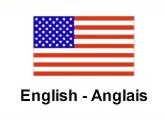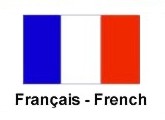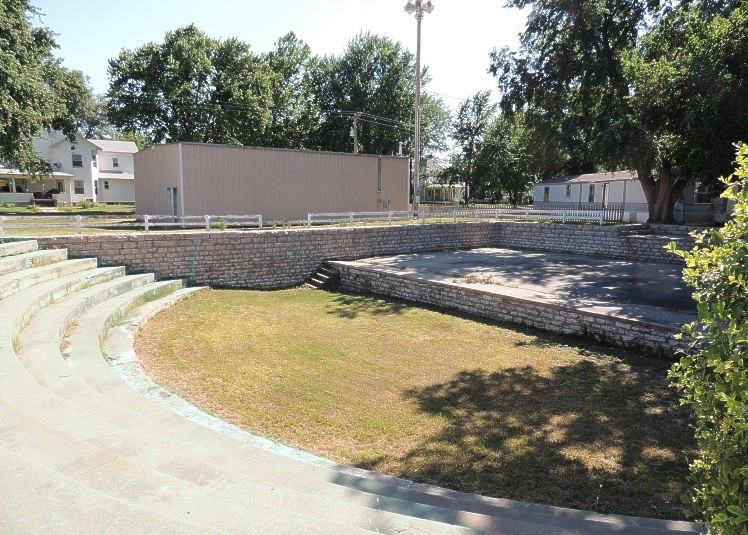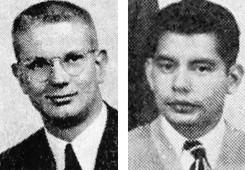Sixty-five years after the play's only performance, the Stadium where it was staged appears very much as it did on that warm summer night at the end of August in 1948.
Before returning to New York, Sonkin made several stops. One was in nearby Manhattan, the second in Topeka and the third in Louisville, Kentucky.
The first was to work with Richard Parker. Parker, after his war service, had completed his degree at KSC and was
waiting for a position in the U.S. Foreign Service. In a letter written to Carson, Sonkin described what transpired.
Richard Parker, left, and Cuauhtemoc Salazar were KSC
students who photographed the event
for UNESCO.
I took a long time - and a roundabout way - to get home. Spent a day with Dick Parker in Manhattan, working up some material for his radio program. We transcribed some of the interviews I had, and put on a little conversation between the two of us, etc. - all of which Dick thought would make two radio programs, which I hope have been aired successfully by now.
In Topeka, Sonkin met with Frank J. Warren, the mayor, and Frank Carlson, governor of Kansas. Again from Sonkin's letter to Carson:
Then I spent another day with the lads of station KTOP in Topeka. And we worked up a little transcription which I understand (I was traveling myself, and didn't get to hear it) was used on the Mutual Newsreel in much abbreviated form (Sonkin and Morganville on a coast to coast hookup). I hope you got my wire in time to listen to it yourself.
For me, the triumph of the KTOP business was our getting Governor Carlson to record something. He read a message to the people of Feves that was a honey. I will send you a transcript of what he said as soon as I can.
Governor Frank Carlson
Sonkin's Louisville stop had nothing to do with Morganville, yet also reveals his talent for assessing situations and is best described in his own words:
... after leaving Kansas, I went on to Louisville and spent a little time with an old army "buddy" - very interesting, and somehow very pathetic, because this guy, although very nice, is - after all - somebody with whom I have in common only the brief time we were in the same outfit. And after we had reviewed our army careers, and I tried to remember names (fortunately he's better at recalling names than I am, so he was able to supply them all), and decided we hadn't really enjoyed the army, and after we told what we'd been doing since we got out, and after I had admired his babies - there just wasn't very much to say. Except we really must get together again, and they would have to come to New York, etc.
Sonkin then returned to the subject of Morganville, both in regard to the experience of being in small-town Kansas and the additional things he had planned.
I find myself still full of Morganville, and full of the excitement and enthusiasm which the town, your script, the
pageant, etc., have inspired. I am hoping that you will be able soon to keep your promise to send me a copy of the
script. I still think there's an article to be done on the Song of Morganville and I have made a start on one. ... I
would - should I get enough energy and ability-to-concentrate to get something done - like to clear it with you, as they
say.
... I have a date with the World Wide Broadcasting Foundation, to turn over to them the recordings I made, and to work
with them on the preparation of a broadcast for France. I think Governor Carlson's message will be perfect for them,
and I shall take advantage of [Morganville mayor] Mr. Davis' carte blanche [offer] to write out an appropriate message
to the people of France for him. etc.
... I could write ... so much about what an experience for me my visit to Morganville was. You will just have to let me
say that one of the great things was getting to know you ...
... I'm very curious to know about the post-pageant activities in Morganville - about how people responded, etc. What's
going on now. etc. Send me all the gossip you hear about me, of course. Tell me all the nice things people said about me.




